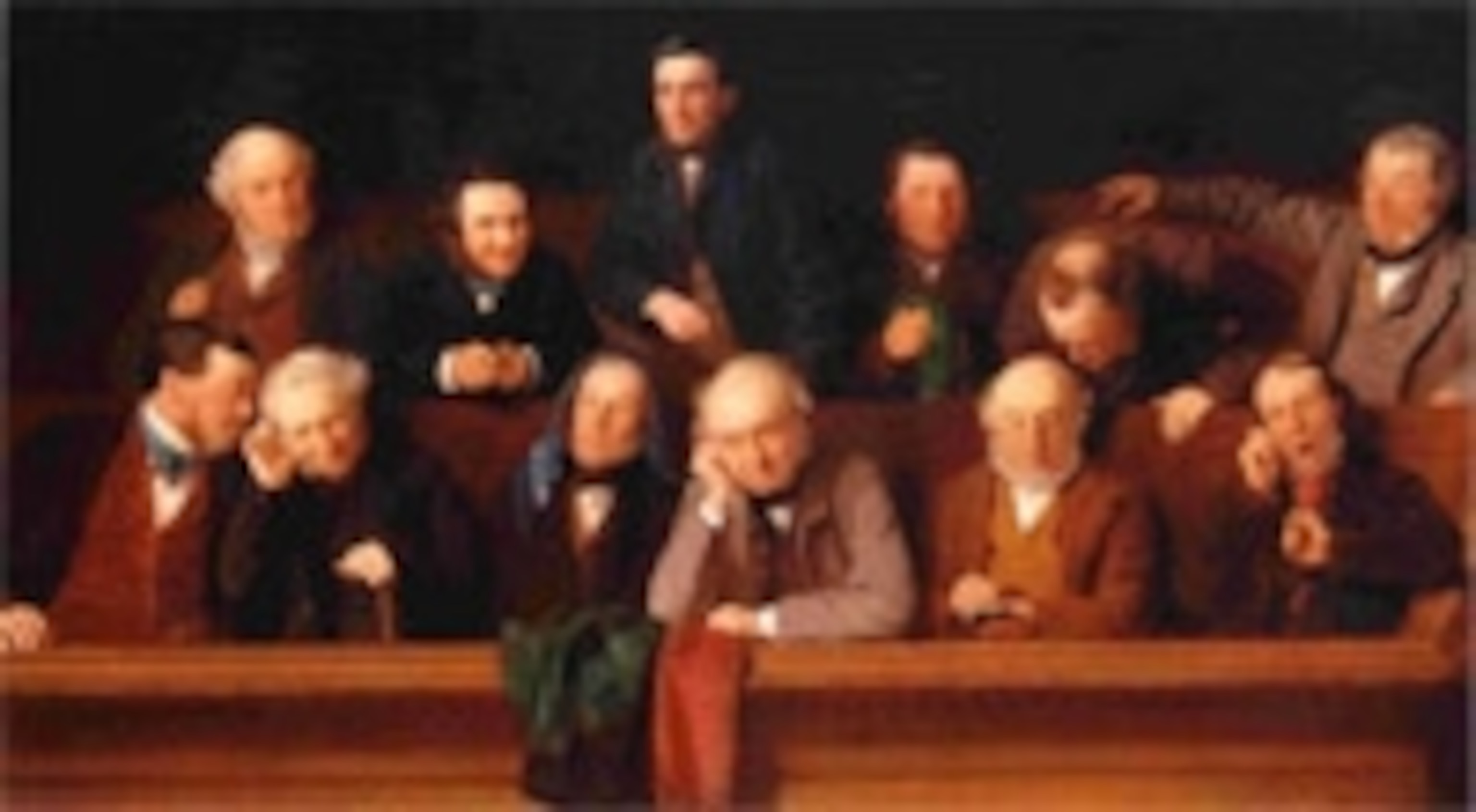Clean thoughts can soften moral judgments
Throughout our language, the vocabulary of physical cleanliness is also used to describe moral cleanliness. We describe saints as pure and thieves as dirty; consciences can be clean and sins can be washed away. But more and more, psychological studies tell us that these concepts are entwined in a very real way. The act of cleaning, or even just thinking about the concept of cleanliness, can influence a person’s moral compass, swinging it towards a less judgmental direction.
This isn’t the first time that I’ve blogged about this. Two years ago, Chen-Bo Zhong and Katie Liljenquist found that volunteers who dredged up a past misdeed were more likely to think of words related to cleaning or show a physical preference for cleaning products. This “Lady Macbeth effect” is reminiscent of the infamous Shakespearean character and her failed attempts to wash her hands of spilt blood.
Simone Schnall and colleagues from the University of Plymouth have expanded on Zhong and LIllenquist’s study by showing that the effect works in the opposite direction. Not only can feelings of moral muck trigger a desire for physical cleanliness, cleanliness can also change how seriously people view a moral transgression.
They asked 40 volunteers to a rearrange 40 sets of four words into sentences. Through this word-game, they ‘primed’ 20 of the volunteers with thoughts of cleanliness by interspersing half of their sets with cleaning-related words, such as pure, washed, clean, immaculate or pristine. The other 20 volunteers only saw unconnected neutral words in all of their sets.

After the word game, the volunteers cast their judgment on six different moral dilemmas. Some are familiar, such as keeping money from a found wallet or lying on a CV. Others are classics of moral psychology, including switching the tracks of a speeding trolley so it kills one person instead of five, or cannibalising a terminally ill plane crash survivor to avoid starving yourself. And some were rather more taboo, including eating one’s dead dog or having sex with a kitten.
The volunteers rated each action on a scale of moral turpitude, awarding zero marks to a completely acceptable act and nine marks to an extremely wrong one. They found that the volunteers who had been subliminally primed with thoughts of cleanliness were more lenient in their appraisals, giving the dilemmas an average score of 5. The group who weren’t primed gave them an average score of 5.8.
It was a small difference but a statistically significant one, and what’s more, each individual vignette showed the same pattern, including the kitten one (arguably the hardest-to-stomach). There, the neutral group gave the act an average rating of 8.25 (close to the maximum score), while the primed group delivered an average score of just 6.7.
To make sure that the cleaning-related words weren’t triggering any specific emotions that would have coloured their later judgments, Schnall asked the volunteers at the time to rate how strongly they felt different emotions, from disgust to happiness to anger. Their ratings showed that the initial word game didn’t trigger any specific mood.
So concepts of cleanliness can slightly soften our views on wrongdoings, and a second experiment suggests that the physical act of cleaning might be able to do the same. Schnall recruited another group of 44 volunteers and showed them a physically disgusting scene from the film Trainspotting (they don’t say which, but surely it’s the bit where Renton throws up in the world’s worst toilet). Afterwards, they were escorted to another room to make way for the next volunteer and half of them were told that, it being a tidy staff room, they would have to wash their hands when they entered.
The volunteers then rated the same vignettes that their peers considered in the first experiment. As expected, those who had the chance to clean their hands were less severe in their judgments than those who did not. And using the same emotional scales as the first experiment, Schnall showed that this was mostly due to feelings of disgust, which the clip triggered more than any other emotion. And both groups of volunteers felt similarly disgusted.
The size of the effect was greater in the second experiment than the first one and Schnall suspects this is because the experimenter told the second group volunteers that the second room needed to be “clean and tidy”. It’s possible that these instructions, rather than the washing, brought thoughts of cleanliness to the fore – a weakness that Schnall acknowledges. But equally, the influence of both words and actions may have combined to exert a larger pull on the volunteers’ behaviour.

Schnall claims that her results quash the idea that our moral judgments are only the product of careful and deliberate reasoning. While we certainly weigh up evidence and use rational notions of justice to make our judgments, we are also affected by intuitive processes beyond our conscious awareness. By making us feel physically cleaner or morally purer, simple events could affect our everyday opinions, making us judge crimes or wrongdoings less harshly.
Schnall’s group have also found that the reverse is true – by inducing feelings of disgust, they can make people more likely to condemn an action. In a study currently in press, they drummed up feelings of disgust with foul smells, a dirty room or a revolting video clip, or by simply asking volunteers to remember a disgusting experience. In all cases, volunteers who were put off in these ways judged moral dilemmas more severely than those who weren’t, even if the dilemma itself wasn’t disgusting.
Reference: Psychological Science in press.
More from Not Exactly Rocket Science:
- The Lady Macbeth effect – how physical cleanliness affects moral cleanliness
- Social exclusion literally feels cold
- Subliminal flag shifts political views and voting choices
- Unconscious brain activity shapes our decisions

